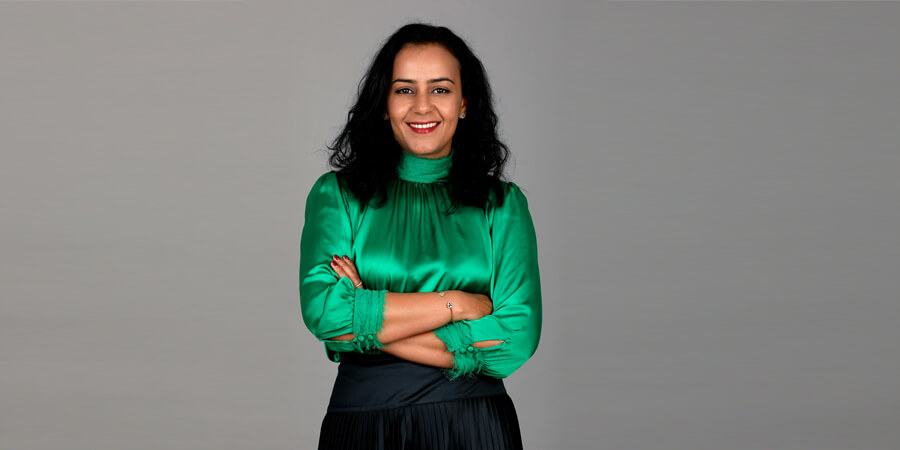Telecom Review Africa conducted an exclusive interview with Salima Amira, country manager, Microsoft Morocco, to discuss the partnership between UM6P and Microsoft. Also, she shed light on how to close the sustainability skills gap and shared some thoughts about how to inspire other women to succeed in the ICT sector.
Can you tell us more about the partnership between UM6P and Microsoft? What positive impact will it deliver to learners?
The Memorandum of Understanding with UM6P is an important collaboration because it will provide Moroccan student developers, start-ups and small and medium businesses with training content but also resources and technology skilling. At Microsoft, we recognize that without the necessary digital skills, the continent will not be able to fully participate in the global digital economy. This is why we are committed to creating access to training and support for people who want to develop their digital skills.
This is an ambitious and expansive program of skills training and transfer for promising technology students and for startups and SMEs in Morocco and across other countries in Africa. We believe that by growing the pool of skilled young professionals, and by empowering startups and SMEs to achieve sustainable growth, we will contribute positively to growing the digital economy in Morocco and across Africa.
How is Microsoft closing the sustainability skills gap so that everyone can achieve their full potential?
Microsoft recognizes that closing the sustainability skills gap is a global imperative — without a skilled workforce, companies will face tremendous challenges in moving from pledges to progress. We recently published a new report, “Closing the Sustainability Skills Gap,” which highlights the sustainability-skilling challenges we must overcome.
To develop a shared understanding of sustainability workforce needs, Microsoft and LinkedIn will support efforts to define skills and competencies and enable the mapping of sustainability skills and jobs as they evolve. Further, we will work with partners to develop and share new sustainability learning materials. These will include LinkedIn Learning paths for sustainability as well as business-focused sustainability materials provided through Microsoft’s Sustainability Learning Center and our Cloud Solution Center. Additionally, we are forming new partnerships with NGOs to help workers, including those in impacted and transitioning communities, complete sustainability learning pathways.
We are also committed to helping develop the next generation of sustainability workers by creating and providing new curricular and training materials to be used by primary and secondary school students.
With the diversity of digital services and the increase in competition between companies, what are the challenges facing the company in Morocco?
Morocco is Microsoft cloud-enabled, so our focus is on building trust and security in the country. Data residency is an important topic, and we engage regularly with local organizations and the Moroccan government on this topic.
We also offer a number of specialist industry solutions to enable businesses in the Financial Services Industry, Energy and Manufacturing and Government sectors.
Sustainability is a top priority for us, and we will work with public and private entities to find technology-enabled solutions to decarbonization, sustainable “smart cities” and green solutions.
As a woman leader in the ICT industry, what would you say to other women who may aspire to follow in your footsteps?
Follow your dream. The only thing that drives me is the legacy that I want to leave to my two daughters and the role model I want to be for them. It can be challenging for young girls and women to pursue their passion for STEM subjects, but I encourage them wholeheartedly to pursue their dreams and keep persevering. I also encourage them to be proactive in developing their network and reaching out to the women leaders networks available around them.
I am a firm advocate for fostering a culture of inclusion, transparency and trust, and I hope that at Microsoft Morocco, women in technical careers find they’re welcome.
What are the goals and future plans that Microsoft is focusing on?
Our business in Africa focuses on three areas: upskilling, entrepreneurship, and infrastructure. We develop skills to build capacity to enhance entrepreneurship and employability. We empower Africa-based startups set up by Africans who build solutions for Africa, and we support them through affordable internet access, smart devices, and cloud services. Our goal is to help accelerate the development of highly productive, at-scale communities that build solutions with Microsoft technology.
We aim to enable digital transformation in Morocco and throughout the region, enabling our customers and partners through the unique value of the Microsoft Cloud, while bringing to life our mission of empowering every person and every organization on the planet to achieve more. Innovation in cloud services will better enable Morocco to participate in the global digital economy.
We have a tremendous opportunity to accelerate our business growth on the continent and also a responsibility to increase our role to help drive impact at scale, accelerating Morocco’s digital transformation.
